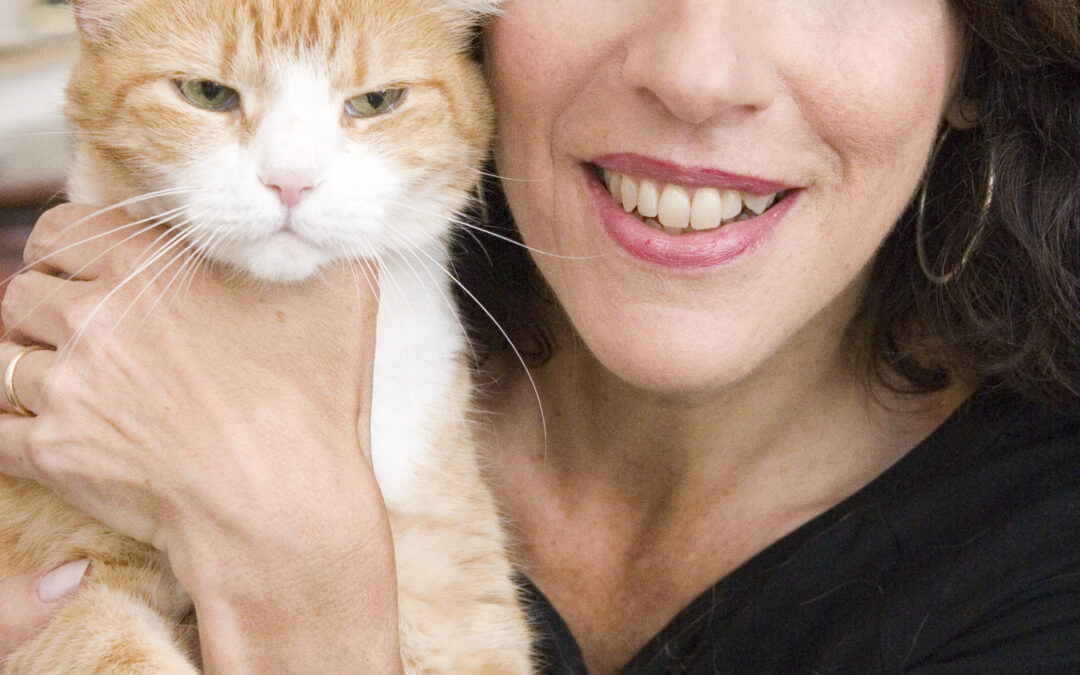Puccini’s opera Il Tabarro boasts a dreamy setting: a houseboat on the Seine, where the characters sing Puccini’s rich, soaring lines. Yeah, OK, they die or have terrible lives, but they get to sing fabulous music. Those characters, of course, are the soprano, tenor, and baritone. But I have sung the mezzo-soprano role of Frugola, which, for most mezzos, is no dream role: she’s a bag lady with ungrateful music to sing—high notes with no easy approach and no memorable aria. Frugola is a character role, so why would I want desperately to sing it, after having sung such roles as Amneris and Carmen? Because Frugola sings about her Orange Cat, how she loves that cat (il mio soriano dal pelo fulvo) more than she loves her husband, Talpa. I campaigned to be assigned that role when I was engaged at an opera theater in Germany, and had zero problem securing the job. But like many German productions, this one did not feature a traditional setting; instead of the gentle banks of the Seine, it was set in a courtroom in Third-Reich Germany, to be exact. And though the director instructed me to pull a real pig’s heart (even though Puccini specified “beef heart”) from my bag onstage (for the cat’s meal), he would not allow a real cat in the production. Despite the fact that the pig’s heart was locked up in the fridge between performances, the onstage smell was unbearable by closing night.
So you can imagine my delight when my manager procured a contract with the Arizona Opera for me to sing Frugola—and for my huge and beloved cat Big Red to be part of the production. The opera company would pay my fee and airfare, of course; the contract specified that Big Red would not receive a fee but that his airfare would be covered. I was listed on the contract as “Janice Meyerson, Mezzo-Soprano,” and Big Red was listed as “Actor.” This was quite a respectful title for Big Red, instead of the usual designation for a nonsinging role as “extra” or “supernumerary.” We agreed to the terms and submitted separate photos of myself and Big Red for the program. I spent the months before the engagement teaching Big Red to walk on a purple-rhinestone-studded leash. Well, “teaching” is the wrong term. More like hauling an uncompromising 24-pound bag o’ potatoes along a bumpy road.
I reviewed my score so that I could be note-perfect by the first rehearsal, eagerly anticipating a traditional Tabarro production, after the indignities in Germany. I confirmed my airline reservation and ensured that the cat carrier was regulation size for the aircraft. All was in order on departure day: I had packed everything I would need for three weeks in Arizona, including the rhinestone leash and some cat treats. Now to pack up Big Red and be off to the airport!
Big Red was nowhere to be found. At last, I found him cowering under the bed, unbudgeable. Finally, I coaxed him out—well, actually, I pushed him out with a long pole. I opened the carrier lid and tried to place him inside, but he simply would not fit. His well-larded haunches were hanging out over the sides of the container, making it impossible to fasten it shut. Try as I might, there was no way I could squeeze Big Red into that thing. I was going to be late for my flight.
Sadly, I left him at home. Il Tub-arro.
Upon my arrival in Tucson, the director asked where the cat was. “Oh, he got another engagement that paid more,” I answered cheerily. The director looked dubious. “OK,” I admitted. “He was too fat for the carrier. Yet another operatic career hampered by weight problems.”
We performed Il Tabarro to great, but catless, success, and Big Red never did get another gig.

